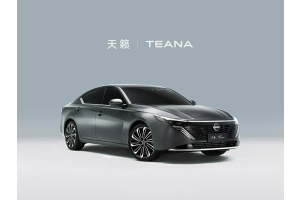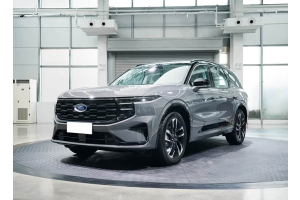Xiaomi Reports Strong Q2 2025 Financial Results, Driven by Robust Growth in Electric Vehicle

Xiaomi Reports Strong Q2 2025 Financial Results, Driven by Robust Growth in Electric Vehicle and AI Sectors
Chinese technology giant Xiaomi has announced impressive financial results for the second quarter of 2025, demonstrating significant growth across its business segments, particularly in the electric vehicle and artificial intelligence sectors.
The company reported total revenue of 116 billion yuan (approximately US$16.11 billion), representing a substantial 30.5% year-on-year increase. Net profit showed even more dramatic growth, reaching 10.8 billion yuan (US$1.5 billion) with a remarkable 75.4% increase compared to the same period last year.
Electric Vehicle Business Performance
Xiaomi's smart electric vehicle division has emerged as a major growth driver, generating 20.6 billion yuan (US$2.86 billion) in revenue during the quarter. The company achieved approximately 81,000 vehicle deliveries in Q2 2025, representing an extraordinary 197.7% year-on-year increase. By July 2025, cumulative deliveries surpassed 300,000 vehicles, marking a significant milestone for the relatively new automotive venture.
Financial Improvement and Path to Profitability
Perhaps the most encouraging development is the rapid improvement in Xiaomi's EV unit economics. The average loss per vehicle sold in Q2 2025 was approximately 3,700 yuan (US$507), showing dramatic improvement from previous quarters. This represents a reduction from US$1,376 in Q4 2024 and US$905 in Q1 2025. Over the past three quarters, the average loss per vehicle has decreased by 400-500 US dollars each quarter, putting Xiaomi on a clear path toward profitability in its EV business, potentially as soon as the next quarter.
This significant improvement is attributed to multiple factors including reduced component costs, optimized manufacturing processes, and the successful launch of the premium SU7 Ultra sedan.
Expanding Product Portfolio and Market Presence
Xiaomi's automotive expansion continues with the recent launch of the YU7 luxury SUV, which received over 240,000 orders within just 18 hours of its debut. The company's retail and service network has expanded to 335 stores across 92 cities in China, providing comprehensive support for its growing customer base.
In July 2025 alone, Xiaomi EV delivered more than 30,000 vehicles, representing a 20% month-over-month increase and a 121% year-over-year growth.
Production Capacity Expansion
To support this growing demand, Xiaomi has been rapidly expanding its production capabilities. The company's first manufacturing plant, with an annual capacity of 150,000 vehicles, is operating near its maximum monthly output of 24,000 units. A second plant with identical capacity is now operational, while a third facility is currently under construction.
Financial Performance Summary
| Segment | Q2 2025 Revenue (CNY) | Q2 2025 Revenue (USD) | Year-over-Year Change |
|---|---|---|---|
| Total Revenue | 116,000,000,000 | 16,111,111,111 | +30.5% |
| Smart EV (SU7, YU7) | 20,600,000,000 | 2,861,111,111 | N/A |
| AI/Other Innovation | 600,000,000 | 83,333,333 | N/A |
| Adjusted Net Profit | 10,800,000,000 | 1,500,000,000 | +75.4% |
Exchange rate: CNY:USD ≈ 7.2, August 2025
Global Implications and Export Potential
For international customers in markets including the Middle East, Americas, and Africa, Xiaomi's growing automotive capabilities present new opportunities for accessing innovative electric vehicles. The company's rapid scaling, improving unit economics, and expanding production capacity suggest strong potential for future export offerings.
International buyers interested in Chinese electric vehicles can benefit from comprehensive services through TopUsedCars.com, including logistics, customs clearance, and after-sales support, ensuring a seamless purchasing experience regardless of location.
Xiaomi's performance demonstrates how technology companies are successfully transitioning into the automotive sector, bringing innovation, rapid development cycles, and competitive pricing to the global electric vehicle market.








